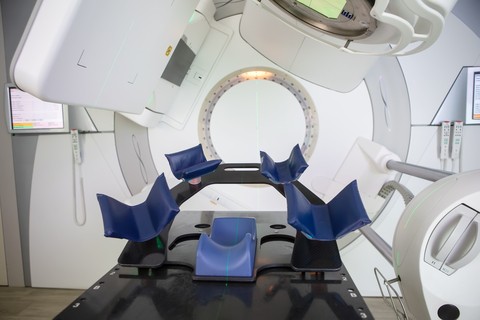The Role of Adjuvant Radiotherapy in Mesothelioma Treatment

A groundbreaking study explored a different approach to mesothelioma treatment. Patients treated with radiation therapy after surgery showed promising results. This technique is called adjuvant radiotherapy.
Revolutionizing Mesothelioma Treatment
Mesothelioma is a rare but aggressive type of cancer that affects the lining of the lungs, heart, or abdomen. It’s caused by exposure to asbestos, a harmful mineral that was once widely used in construction and manufacturing. Because it’s often diagnosed at an advanced stage, treatment options have been limited. And the prognosis hasn’t been very promising.
For a long time, the standard treatment for mesothelioma has been a combination. This often includes chemotherapy, surgery, and radiation therapy. Of all three, chemotherapy is the common approach. Only one chemotherapy drug combination is FDA approved for mesothelioma: pemetrexed with cisplatin.
Adjuvant Radiotherapy Shines in Mesothelioma Study
Recently, a groundbreaking study has been conducted to explore a different approach. In this study, patients were treated with radiation therapy after surgery. This is called adjuvant radiotherapy. This technique involves delivering radiation in fewer, more intense sessions. This process is known as accelerated hypofractionation.
The study, which began in 2017, enrolled 29 patients with mesothelioma. These patients were carefully chosen based on strict criteria. For example, not having received previous radiation therapy. They were then treated using a special radiation therapy system.
The early findings are encouraging. None of the patients experienced severe lung problems. About 65% of patients reported mild symptoms of pneumonitis, and 10% experienced some lung toxicity. Fortunately, these cases were manageable without a lot of medical intervention.
Aside from pneumonitis, about half of the patients reported mild coughing and shortness of breath.
The radiation doses used in this study were carefully controlled to minimize any harm to healthy lung tissue. The results show promise, but more research is needed. The study is ongoing, and scientists are eager to learn more about this new treatment approach’s long-term effects and benefits.
Source
Parisi E, Arpa D, Ghigi G, et al. Malignant pleural mesothelioma and radiotherapy: Lung toxicity results of an interim analysis in prospective pilot trial. Int J Radiat Oncol Biol Phys. 2023;117(2): e46. doi: 10.1016/j.ijrobp.2023.06.749. https://www.sciencedirect.com/science/article/pii/S0360301623051830





